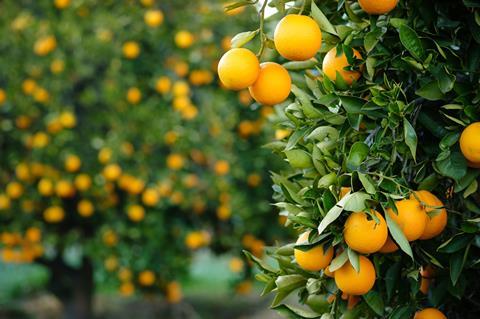CGA says new entry regulations for oranges will be impossible to comply with and have a huge effect on the South African citrus sector
The South African citrus industry says compliance with the new EU regulations will be difficult to achieve and will add enormous additional cost for the industry.

“Introducing these measures mid-season is not the normal practice simply because of the mayhem, confusion and problems that will arise. We envisage many problems,” said Justin Chadwick, CEO of the South African Citrus Growers’ Association (CGA).
This comes at a time when South Africa is still involved with what is being called a multi political initiative to try and delay implementation because of the disruption it will cause. The sector said the actions of the EU and the Directorate-General for Health and Food Safety (DG SANTE) are “a charade which is becoming ridiculous”.
“DG SANTE expected South Africa to have implemented their unjustified, scientifically flawed, unnecessary, and disproportionate measures on FCM before the South African National Plant Protection Organisation (Department Agriculture Land Reform and Rural Development (DALRRD)) had even received official notice of the new measures,” said Chadwick.
The South Africans claim politics had overtaken scientific reasoning in the adoption of the new set of entry regulations for South African and African oranges into the European Union.
South Africa’s Department of Agriculture, Forestry and Fisheries (DALRAD) held a meeting this week to discuss the new measures.
No start date for their implementation has been announced so far but it now seems unavoidable and there is little South Africa can do to change the minds of those taking decisions in Brussels.
It comes in the middle of the harvesting season – with the picking of the largest part of the orange crop, Valencia’s, only starting now.
Other observers say the implementation of the new measures will have a devastating effect on a large section of the citrus industry– although it will not affect grapefruit, soft citrus and lemon exports.
However, the CGA warns that the arrival of hundreds of containers of oranges over the coming weeks could be compromised.
The new rules are the latest blow to the South African citrus industry. The loss of markets due to the Russian War in the Ukraine, rocketing freight rates, an unstable domestic port situation and shortages of containers have changed fortunes for a fast-growing fresh produce export sector.
Leaders have warned that some growers will not be able to cover export cost due to steep rises in freight rates which will not be matched by a similar rise in market prices.
The new EU regulations will hit growers’ bottom line further as they will have to fund the cost of their implementation. They will soon have to decide whether they can still afford to ship part of their late season Valencia crop to Europe this season.
What will happen in future is difficult to judge at this stage. The South African citrus industry has in the past showed tremendous resilience in dealing with difficult decisions.
Between now and next year, they may well find ways to deal with the new EU requirements. At the same time one can expect that they will spend a lot more time on further strengthening ties in other markets where they perceive that they will have a much more friendly reception.
What is certain, is the fact that they need the EU market if they are going to continue to play a leading role in the South African fresh produce export industry.
The most telling effect may be that the growth in citrus production experienced during the past few years will be dramatically slowed down – and with that the industry’s capacity to further aid a South African economy which is in dramatic decline.



